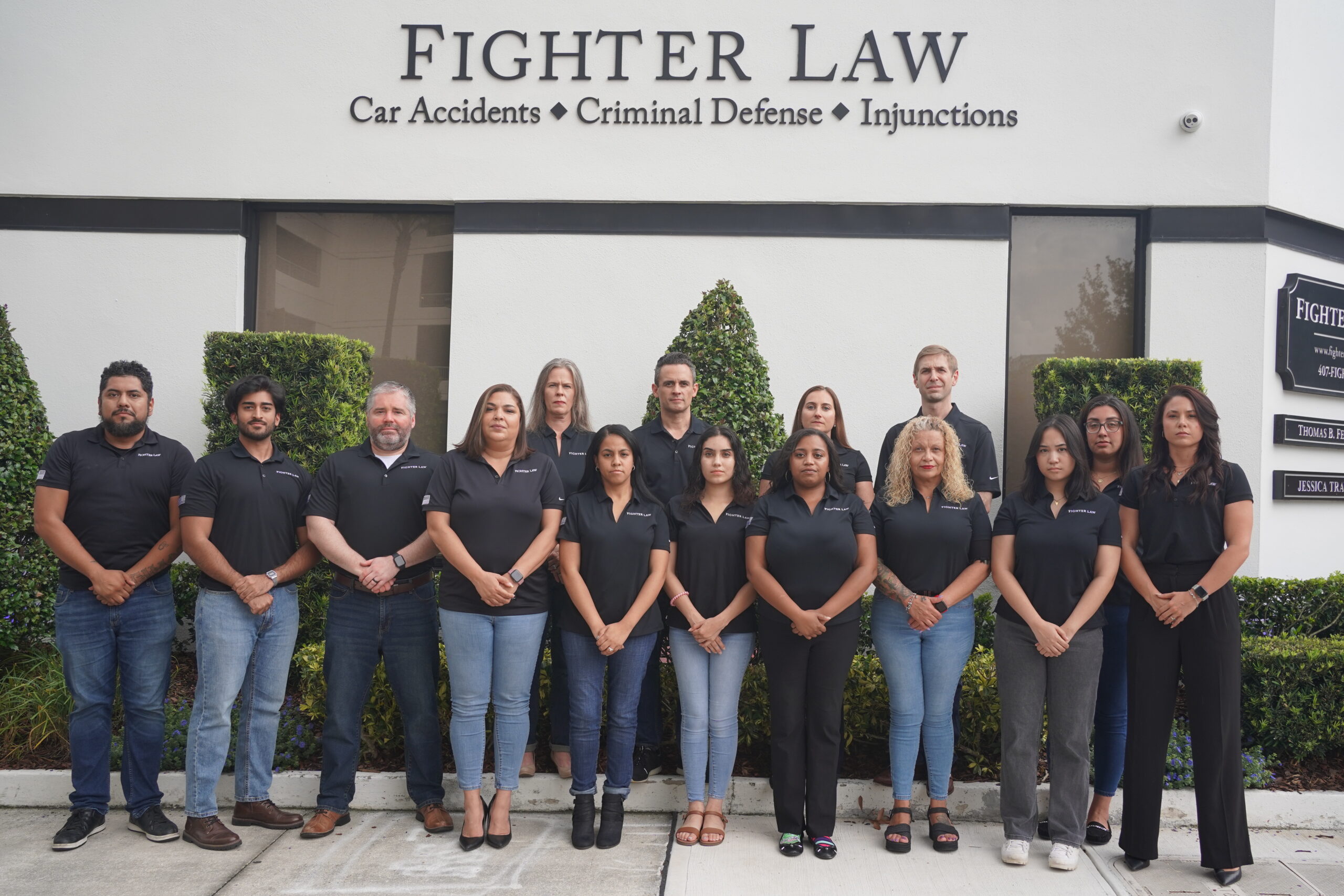Pretrial Motions

When you’re accused of a crime, the legal process can feel overwhelming. At Fighter Law, we understand how intimidating it is to face criminal charges, especially if law enforcement stopped you or searched your property in a way that felt unfair or wrong. As experienced criminal defense lawyers in Florida—and board-certified criminal trial lawyers recognized by The Florida Bar—we know that protecting your rights is our most important job. One powerful tool we use to fight for our clients is a motion to suppress. But what is a motion to suppress, and how can it impact your case? Let us break it down for you in simple terms.
Understanding Basic Criminal Procedure
The criminal justice system follows a process that begins the moment law enforcement stops you, questions you, or takes any investigative action against you. Here’s a brief overview of what happens after an arrest:
- The Stop or Arrest: This could be a traffic stop, a detention during an investigation, or an outright arrest.
- Evidence Collection: Police may search your vehicle, home, or belongings and collect evidence they believe is tied to the crime.
- Formal Charges: The prosecutor decides whether to file charges based on the evidence gathered.
- Pretrial Motions: Before trial, your defense attorney can file certain legal motions to challenge how evidence was obtained.
- The Trial: If the case goes to trial, the judge or jury will review the admissible evidence to decide whether you’re guilty.
A motion to suppress is filed at the pretrial stage and focuses on keeping illegally obtained evidence out of court.
What Is a Motion to Suppress?
A motion to suppress asks the court to exclude specific evidence because it was obtained in violation of your rights. The Fourth Amendment of the U.S. Constitution protects you from unreasonable searches and seizures by law enforcement. This means that police must follow strict rules when stopping you or searching your property. If they break those rules, the evidence they collect—whether it’s drugs, weapons, or statements—may not be used against you in court.
For example, if you were pulled over without a valid reason and drugs were found during the stop, your attorney could file a motion to suppress the stop in your drug case. If successful, the evidence of the drugs may be thrown out, weakening the prosecutor’s case or even resulting in the charges being dismissed altogether.
How a Motion to Suppress Works in a Drug Case
Drug cases often rely heavily on evidence gathered during traffic stops or searches. In Florida, these types of cases are common, but so are errors by law enforcement. Here’s how a criminal defense lawyer can use a motion to suppress to protect you:
1. Challenging the Reason for the Stop
Law enforcement must have a valid reason—called “reasonable suspicion”—to stop your vehicle or approach you. Reasonable suspicion means they must observe specific facts that suggest you’re involved in criminal activity. For example:
- Invalid Stop: If you were pulled over for something vague like “driving suspiciously” without specific details (such as speeding or failing to signal), your attorney can argue that the stop was invalid.
- Racial Profiling: If the stop appears to be based solely on your race or appearance rather than any legal justification, this could be grounds for suppression.
If the stop itself was illegal, any evidence gathered during or after the stop may be inadmissible.
2. Challenging the Search
In many drug cases, law enforcement conducts searches of vehicles, homes, or belongings. A search is only legal under certain conditions, such as:
- With a Warrant: A judge signs a search warrant after reviewing evidence that justifies the search.
- Probable Cause: Officers may search without a warrant if they have clear evidence of a crime.
- Consent: If you voluntarily allow the police to search, they don’t need a warrant.
However, officers often overstep their boundaries. For example:
- Invalid Consent: If you felt intimidated into agreeing to a search, your attorney can argue that your consent wasn’t truly voluntary.
- Lack of Probable Cause: If officers searched your car based on a “feeling” rather than clear evidence, the search may be illegal.
A successful motion to suppress a search can lead to key evidence—like drugs found in your car—being thrown out.
3. Challenging Miranda Violations
If you were interrogated after your arrest, officers are required to read your Miranda rights, which inform you that you have the right to remain silent and the right to an attorney. If the police failed to do this and you made incriminating statements, your attorney can file a motion to suppress those statements.
How We Build a Strong Motion to Suppress
At Fighter Law, we don’t just file motions to suppress and hope for the best. We use our specialized training and extensive trial experience to carefully craft arguments tailored to your case. Here’s how we approach this:
1. Thorough Investigation
We review every detail of your case, including body cam footage, police reports, and witness statements, to identify any violations of your rights.
2. Legal Analysis
As board-certified criminal trial lawyers, we understand Florida’s complex search and seizure laws inside and out. We use this knowledge to find weaknesses in the prosecution’s case.
3. Compelling Court Arguments
We present clear and convincing arguments to the judge, showing how law enforcement overstepped their authority. Our goal is to demonstrate that the evidence should not be allowed in court.
Real-Life Example: How We Suppressed a Stop in a Drug Case
One of our clients was pulled over late at night for “weaving within his lane.” The officer claimed this gave him reasonable suspicion of impaired driving. However, the body cam footage showed that the client was driving perfectly within the lane, and the stop appeared to be pretextual. We filed a motion to suppress the stop and argued that the officer had no valid reason to pull the vehicle over. The judge agreed, and the evidence of drugs found during the illegal stop was thrown out. Without that evidence, the prosecutor had no case, and the charges were dismissed.
Motions to Dismiss
A motion to dismiss is another powerful legal tool we can use to defend you. Unlike a motion to suppress, which focuses on excluding evidence, a motion to dismiss asks the court to throw out the charges entirely. This motion argues that even if all the facts alleged by the prosecution are true, the law does not support the charges.
When Can We File a Motion to Dismiss?
- Insufficient Evidence: If the prosecution cannot show enough evidence to support the charges.
- Legal Defenses: If the facts support a legal defense, such as self-defense or immunity under Florida’s “Stand Your Ground” law.
- Procedural Issues: If the case has procedural defects, such as violations of your right to a speedy trial.
How Fighter Law Can Help
We use our deep understanding of criminal law to identify every possible argument for dismissal. As expert trial attorneys, we know how to dissect the prosecution’s case and pinpoint flaws that justify dismissing the charges.
Motions in Limine
A motion in limine is a pretrial motion that seeks to limit or exclude specific types of evidence or testimony from being presented to the jury. Unlike a motion to suppress, which challenges how evidence was obtained, a motion in limine focuses on keeping unfair or prejudicial information out of the courtroom.
Examples of Motions in Limine
- Character Evidence: Preventing the prosecution from introducing past criminal history that has no relevance to the current case.
- Inflammatory Evidence: Excluding graphic or emotional evidence that may unfairly sway the jury.
- Unreliable Testimony: Keeping out statements from unreliable witnesses or evidence that has not been properly authenticated.
How Fighter Law Uses Motions in Limine
We file motions in limine to protect you from unfair prejudice. By narrowing what the jury hears, we ensure that the focus remains on the facts of the case and not on irrelevant or inflammatory details. Our experience in jury trials gives us the insight to predict what the prosecution might use to distract the jury—and we counter those tactics before the trial even begins.

Why Board Certification Matters
In Florida, board certification in criminal trial law is a distinction that only a small percentage of attorneys achieve. To become board-certified, attorneys must:
- Have extensive trial experience
- Pass a rigorous exam
- Receive positive peer reviews from judges and fellow attorneys
This certification shows that we are subject matter experts in criminal trial law. When you hire Fighter Law, you’re not just hiring an attorney—you’re hiring a team of experts with specialized training and years of courtroom success.
Why Choose Fighter Law
If you’re facing criminal charges and believe your rights were violated during a stop or search, you need a law firm that knows how to fight back. At Fighter Law, we:
- Have handled hundreds of criminal jury trials
- Are board-certified in criminal trial law by The Florida Bar
- Have a proven track record of success in filing motions to suppress, dismiss, and in limine
Our experience gives us a deep understanding of how to suppress a stop in a drug case and other key strategies to protect our clients.
Don’t leave your future to chance. If you believe law enforcement violated your rights, contact us today to schedule a consultation. We will review your case, explain your legal options, and fight to have illegally obtained evidence thrown out. When you hire Fighter Law, you’re getting a team that will go the extra mile to protect your rights and your future.
Final Thoughts
A motion to suppress, dismiss, or in limine can make the difference between a conviction and a dismissal. Whether it’s suppressing an illegal stop in a drug case, dismissing weak charges, or excluding prejudicial evidence, we have the experience, expertise, and determination to fight for you. Let Fighter Law be your strongest defense when your freedom is at stake.
free case evaluation
Fill out the form below for an free evaluation of your case.

Practice Areas
Learn more about our services in Criminal Defense, Personal Injury, and Injunctions.

We Fight for Outstanding Case Results
We are driven to get you results. Review the outcomes on recent cases we've handled.


